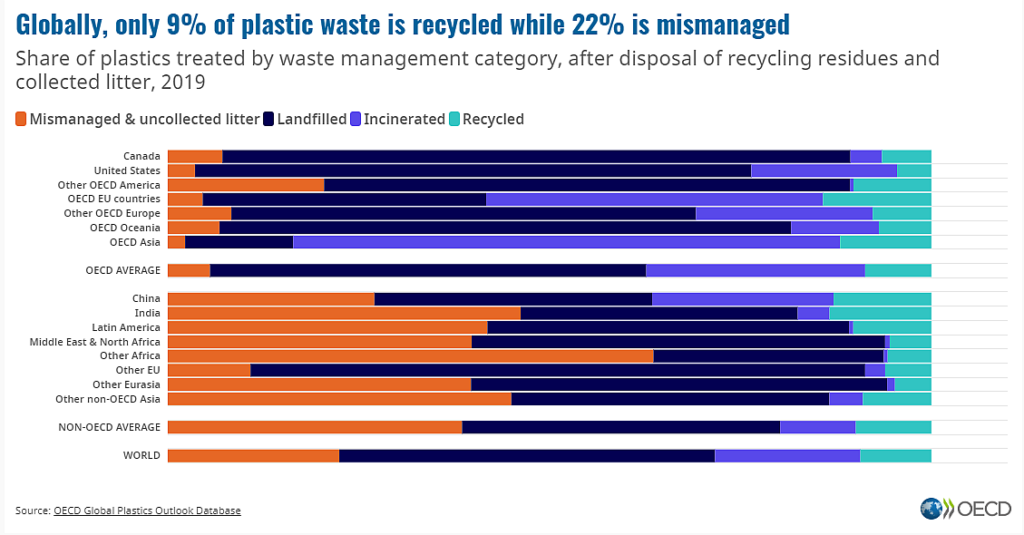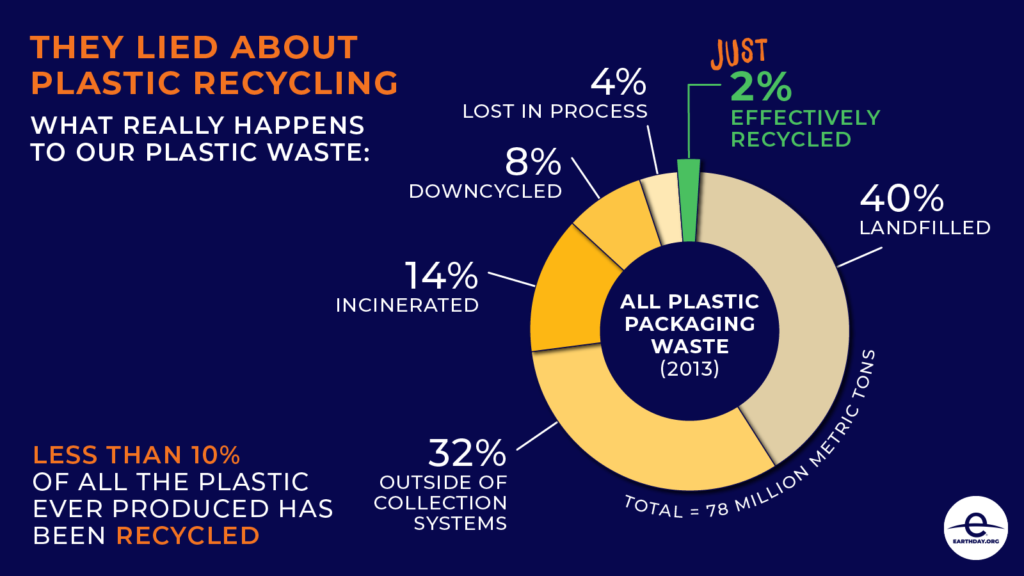A new report by the Organisation for Economic Co-operation and Development (OECD) reveals a startling truth – plastic waste is overflowing our planet. We’re generating double the amount compared to two decades ago, and most ends up in landfills, incinerators, or polluting the environment. Recycling is dismal, capturing only 9% of plastic waste.

The report titled ” Global Plastics Outlook” paints a concerning picture. Rising populations and incomes lead to more plastic use and disposal, outpacing efforts to control plastic pollution. Almost half of this plastic waste originates from developed countries, with the United States leading the pack.
While large plastic debris is a major concern, microplastics – tiny plastic fragments – are also a growing threat. These microplastics come from various sources, including industrial pellets, textiles, and even tire wear. Developed countries contribute significantly to microplastic pollution.

The COVID-19 pandemic offered a temporary reprieve, with plastic use dropping in 2020. However, this was short-lived as economic activity rebounded and plastic consumption climbed back up.
The report emphasizes the need for a multi-pronged approach. We need to reduce plastic production through innovation, better product design, and eco-friendly alternatives. Additionally, improved waste management and increased recycling rates are crucial.
Current efforts, like bans and taxes on single-use plastics, are proving insufficient. These regulations often target a small fraction of plastic waste and are more effective at reducing littering than overall consumption.

The report proposes a set of tools to address this crisis. These include Extended Producer Responsibility schemes, landfill taxes, and deposit-refund systems.
Finally, the report highlights the under-utilization of recycled plastics. Only a small percentage of plastics are made from recycled materials. Creating a robust market for recycled plastics and investing in better recycling technologies are essential steps towards a more sustainable future.
Reference- Organisation for Economic Co-operation and Development, US Environmental Protection Agency, EARTHDAY.ORG






